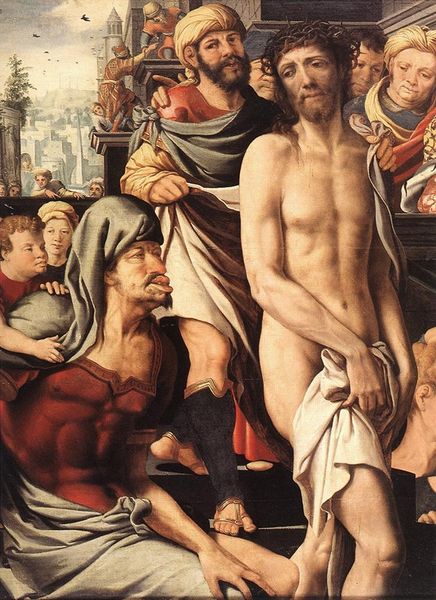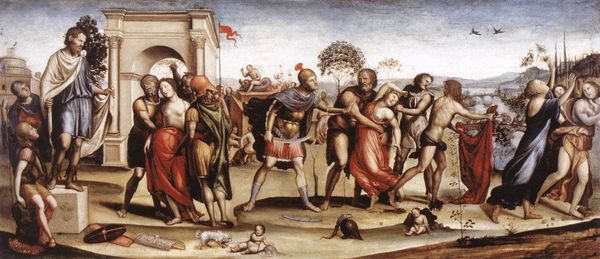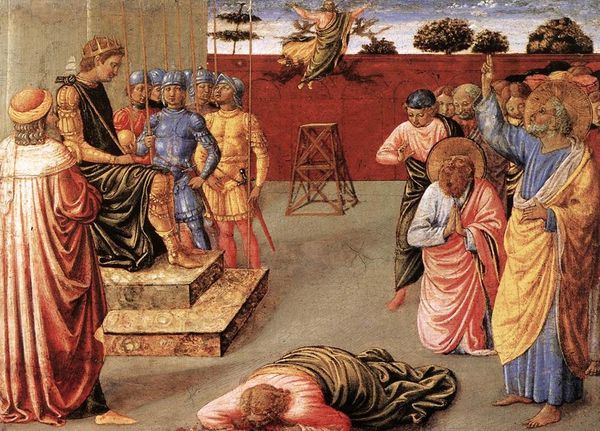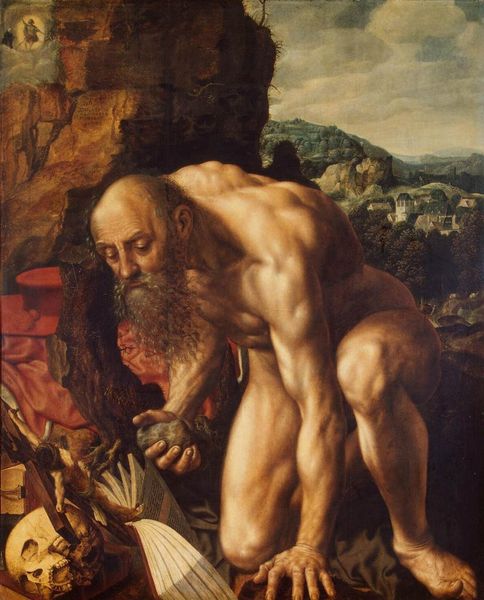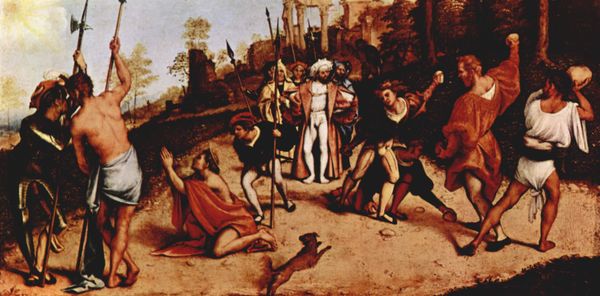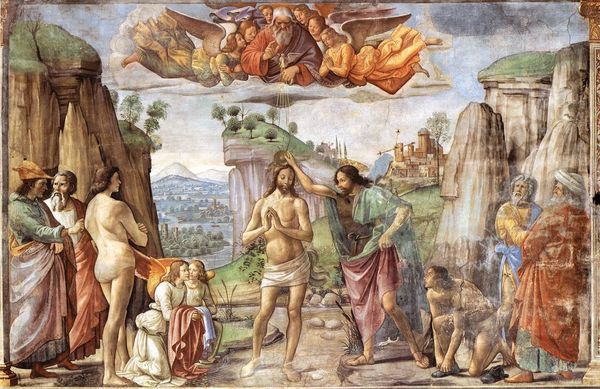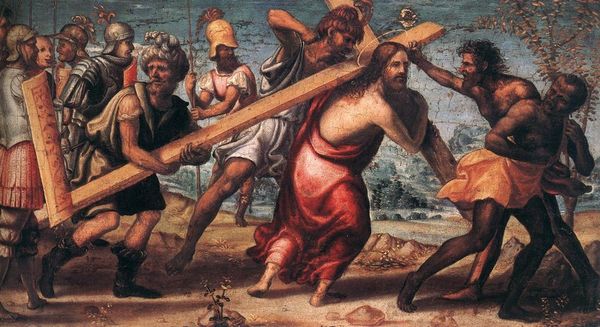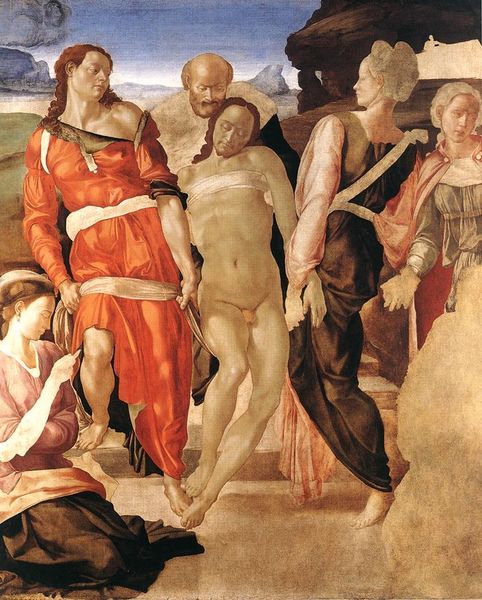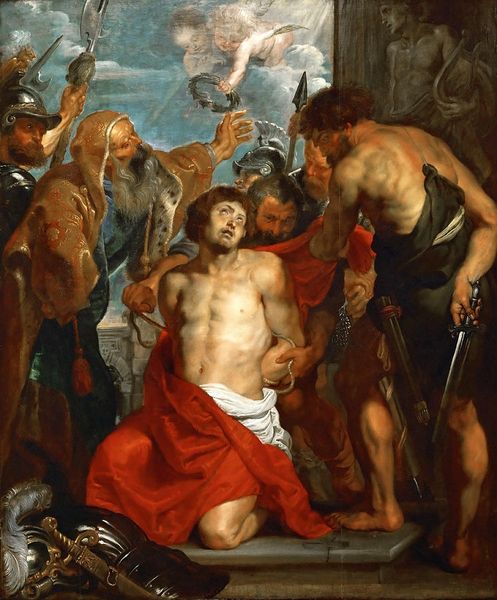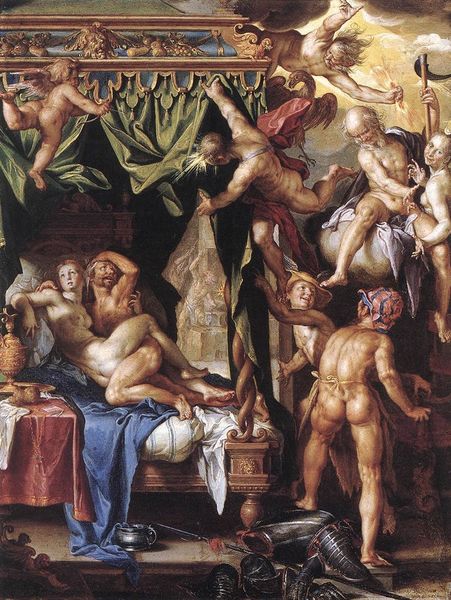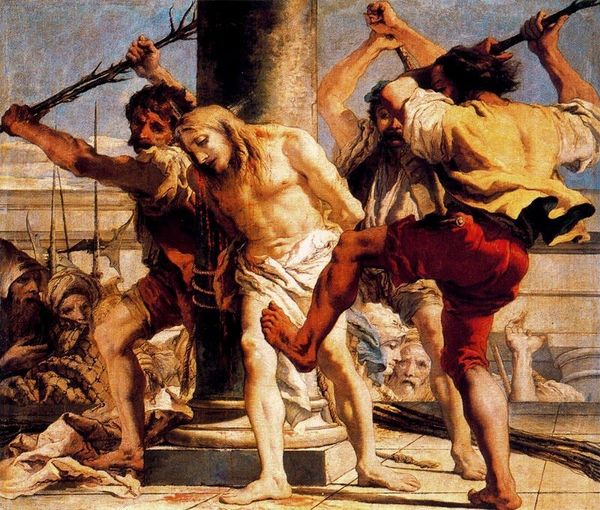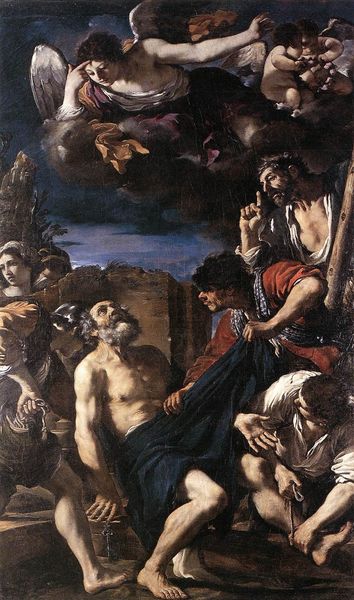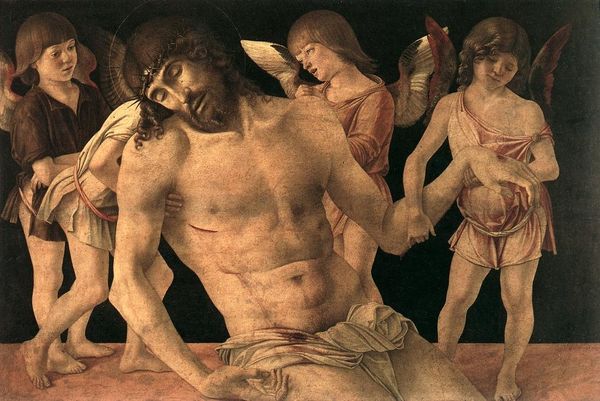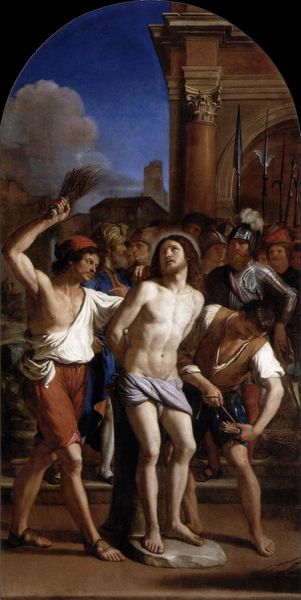
painting, oil-paint
#
portrait
#
narrative-art
#
painting
#
oil-paint
#
figuration
#
oil painting
#
jesus-christ
#
christianity
#
human
#
history-painting
#
academic-art
#
italian-renaissance
Dimensions: 86.7 x 70.5 cm
Copyright: Public domain
Editor: This is Vittore Carpaccio's "The Meditation on the Passion," painted around 1510. The three figures are striking, and I immediately feel a sense of melancholy contemplating it. What underlying stories or symbols are at play here? Curator: Indeed. Notice how the artist juxtaposes Christ with Saint Jerome and the prophet Job. Christ embodies suffering for salvation. Do you see what other symbols of death surround the seated figures? The skull and barren landscape indicate the vanity of earthly life. Editor: Right, the skull and parched earth underscore the somber mood. I'm also curious about the Hebrew inscription behind Christ. What does that contribute? Curator: Ah, good eye. The inscription ties Christ's sacrifice to the Old Testament, establishing a continuity of prophecy. These symbols speak of the past, of law, of tradition. The divine story unfolds through these references; a thread woven through centuries of shared faith. Does the landscape in the background hint at renewal despite this suffering? Editor: It does. The landscape behind Saint Jerome hints at that idea, suggesting life persists beyond death and destruction. I hadn’t considered how each element creates those layers. Curator: Exactly. The symbolic interplay highlights the power of faith in the face of mortality. Carpaccio expertly uses well-known imagery to explore themes of human endurance. Editor: I see now how the artwork's depth stems from linking collective memory to create emotional power through familiar, yet powerfully combined, symbols. I didn’t initially appreciate its layered nature. Curator: Precisely. Hopefully, our reflections help visitors decipher the symbolic languages, which offers rich readings into Renaissance worldviews.
Comments
No comments
Be the first to comment and join the conversation on the ultimate creative platform.
